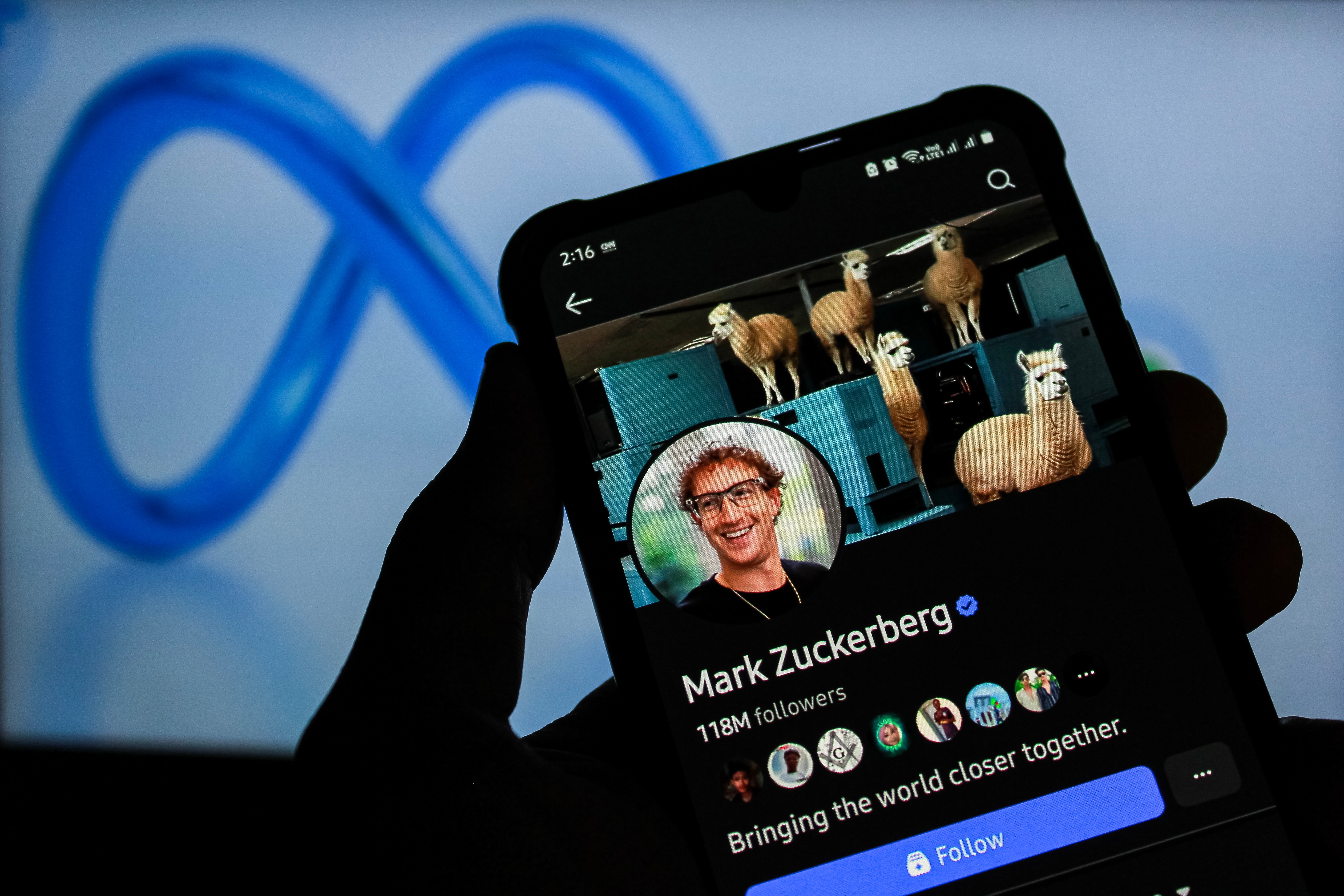Why Meta could be the next Google and how AI will reinvent the future of news
Investors wiped 7.5% off Google's market value overnight on bets that AI apps on smartphones will soon replace search engines, with the race to dominate the space likely to shape the share market's next huge winners and legacy losers.
The US$150 billion sell-off in Google Search-owner Alphabet was sparked by comments from Apple (NYSE: AAPL) executive Eddy Cue that the tech group's Safari browser may shift from Google (NASDAQ: GOOGL) as the default search engine to AI-based conversational bots from the likes of ChatGPT.

Via its search engine's dominance, Google made the market for keyword searches a winner-takes-all monopoly, which catapulted the Stanford University-born company to a US$2 trillion giant as it beat competition from the likes of Yahoo Search and Microsoft's Bing.
Looking ahead, there's no doubt that consumers will interact with AI assistants on smartphones on a daily basis within 12-18 months and this will be a similar revolution to keyword searches and their dominance of online advertising.
The big question is whether this becomes a winner-takes-all market like search, or one carved up by multiple tech giants featuring five or so alternative chatbots on smartphones, which all seek to suck consumers into sticky ecosystems of apps, messaging, music, news, transport, and social media services.
Meta as the new Google?
Last week Facebook, Instagram and WhatsApp-owner Meta (NASDAQ: META) launched its Meta AI assistant app, and it's no secret that founder Mark Zuckerberg has a fierce rivalry with Apple as he believes the business employs anti-competitive practices in the app space.
Around the same time, Zuckerberg also fielded a question from Wall Street analyst Youseff Squall as to whether he saw AI assistants a a winner-takes-all market similar to search.
Zuckerberg said he thought it unlikely people would use multiple AI assistants to perform the same tasks and that personalisation (likely through the data Meta amasses on users) is a potential competitive advantage.
Meta is also leading the market in AI wearables with its Ray-Ban glasses and more than 1 billion people globally wear glasses.
Reading between the lines, it's obvious Meta's scramble to launch the app on a standalone basis (I think this is the first app it has organically developed since Facebook) as fast as possible signals it believes it could be winner-takes-all market, with personalisation via its vast data on users a potential advantage.
Meta's continued user growth at unprecedented scale and network of 3.43 billion daily active users across all its apps also provides a big advantage in funnelling to them its new Meta AI app.
All this means if Meta's AI app becomes close to a winner-takes-all market, it would be tomorrow's Google in creating a near monopoly of the latest way consumers interact with the internet's unlimited services, advertisers, and each other.
However, there's no doubt ChatGPT has a head start and competition will be fierce, with the space's evolution over the next 12 months something the market and media will soon latch on to.
Reinventing the future of news
Another point to note is New York-headquartered global media and publishing giant News Corp (NYSE: NWS) signed a deal last year with ChatGPT-owner OpenAI to license its current and archived publishing content from the likes of The Wall Street Journal, Herald Sun, Barron's, The Australian and Sunday Times.
This means ChatGPT users will receive news content direct from the app rather than the publishing platforms' websites, and opens another Pandora's box for traditional media fighting for the future of news and internet eyeballs.
UnfortunateIy, we don't have room to cover the many implications of the deal here, but given different media groups have different agendas and political leanings, it's arguable the AI apps could start to return information that reflects different biases.
At the terrific Macquarie Australia Conference on Tuesday, Nine Entertainment's (ASX: NEC) chief executive Matt Stanton told investors the local publishing giant could also look to sign such deals and that AI apps would want to do multiple deals to diversify any biases in their repurposed news content.
"We can follow suit. Don't forget News did it because they're a global business and we're not," Stanton said. "I think it's just a timing thing to get down to here. We've had some very, very early conversations with them [unspecified AI groups] and I think it's an opportunity for us and I think it will be good, meaningful business for us."
We can see then that the future of news, search, and consumers' interaction with the internet is set to shift even faster, with the potential for loser- or winner-takes-all scenarios heightening the stakes.
For investors, it's notable that Google now trades on just 13.6 times annualised earnings per share of US$11.24 at Wednesday's knocked-down price of US$152.80, at the same time as it delivers a monster US$70 billion buy-back.
The unprecedented pessimism around Alphabet's outlook in an artificially-intelligent world shows the share market volatility from the Magnificent 7 to traditional news industry players will only accelerate.
5 topics
5 stocks mentioned
.jpg)
.jpg)